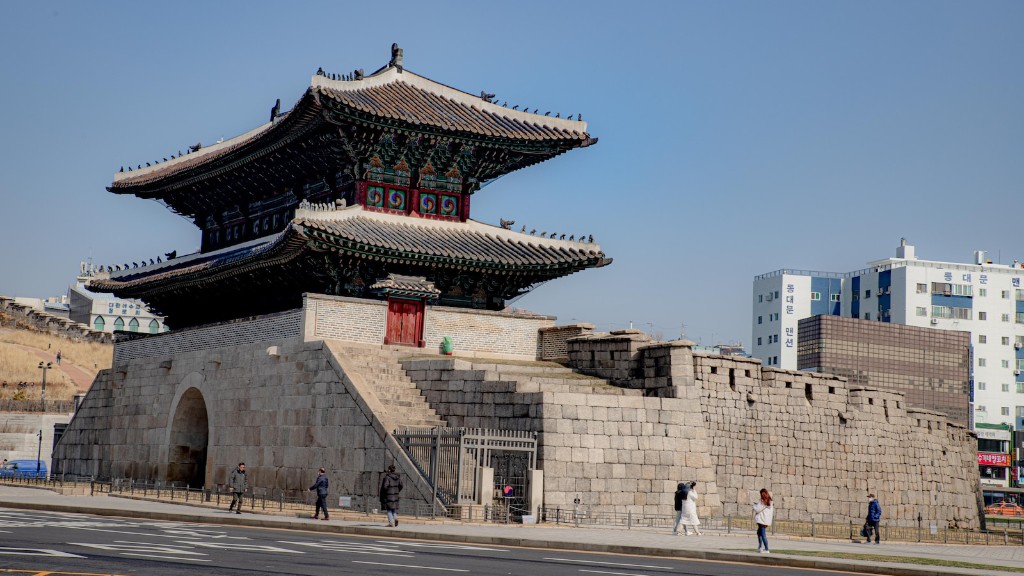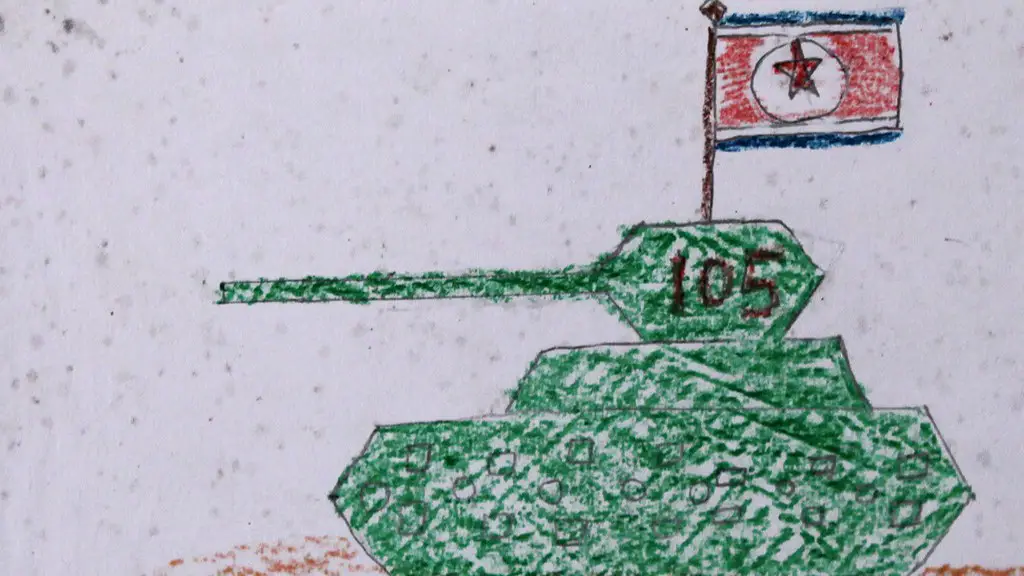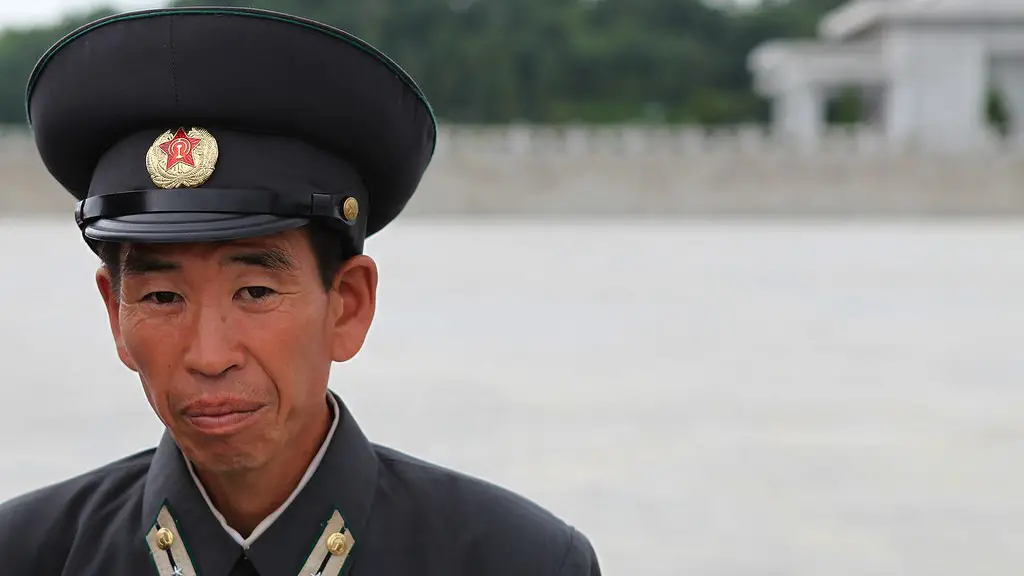1. Government and Politics
North Korea is an authoritarian state led by founder Kim Il-sung, who established it in 1948 after the World War II. The government has maintained a single-party system of dictatorship ever since, and is known for its human rights abuses, as declared by many international organizations and human rights groups. Its current leader is Kim Jong-un, who succeeded his father Kim Jong-il in 2011. In North Korea, all citizens are subject to strict monitoring, limited Internet access, and harsh censorship laws. As a result, information from outside the country is hard to come by and many citizens are ignorant of events happening outside their own country.
The government of North Korea is known for its aggressive stance on foreign policy and nuclear weapons testing. In 2018, North Korea threatened to conduct a “merciless retaliatory strike” against the US if it did not comply with its nuclear disarmament demands. It has also continued to conduct missile tests, despite multiple international sanctions and condemnations from world leaders. This has spiraled into an ongoing international standoff, with US President Donald Trump and North Korean leader Kim Jong-un exchanging regular threats.
2. Economy
The economy of North Korea is heavily reliant on its neighbor and major trading partner, China. This means that the country is subject to the often-unpredictable Chinese economy. North Korea also depends heavily on foreign aid and support from other countries.
The North Korean economy has struggled in recent years due to a number of reasons, including a lack of investment, a lack of resources, and stringent export controls imposed upon the country by the international community. In addition, North Korea’s human rights record has led to various forms of international sanctions and other forms of economic pressure. This, coupled with the country’s unwillingness to open up to foreign investment, has led to the country’s already-struggling economy further weakening.
Though the government has introduced various economic reforms over the years, such as creating special economic zones, much of the economic changes have either been symbolic or implemented at a slow pace.
3. Human Rights
One of the primary reasons why North Korea is considered so bad is due to its human rights record. The United Nations Human Rights Council has called North Korea’s human rights situation “among the worst in the world”, and has documented multiple instances of human rights violations within the country. These violations include but are not limited to the use of torture and public executions, substandard prison conditions, and the kidnapping, torture, and killing of political dissidents.
In addition, North Korea is known for its use of forced labor both within and outside its borders. In the country, citizens are forced to undertake mandatory labor for long periods of time and receive low wages. Meanwhile, there have been reports of North Koreans being forced to work in other countries, such as China and Russia, under harsh and dangerous conditions.
4.Media
North Korea’s government also tightly controls the nation’s media, and has made it a punishable offence to access foreign media or to criticize the government in any way. As a result, North Koreans are denied access to the unbiased news and information they need to make informed decisions.
In North Korea, journalists and media workers are subject to severe censorship and high-level surveillance. Most of the content citizens are allowed access to is pro-government propaganda. What’s more, any dissent is severely punished by the government, leading to many self-censoring out of fear.
5.International Relations
Due to its human rights record and aggressive foreign policy stance, North Korea has strained relations with much of the international community. The US and several other countries have placed heavy economic sanctions on the country, and the US has explicitly stated that it does not recognize North Korea as a legitimate nation. As a result, there is little to no official diplomatic communication between North Korea and its international neighbors.
What’s more, North Korea is widely seen as a major threat to security in East Asia. Its continued pursuit of nuclear weapons, coupled with its reputation as a reclusive nation, has led to a heightened sense of unease among its would-be neighbors. This, in turn, has made it difficult for North Korea to engage in meaningful international relations.
6.Religion
North Korea is an officially atheist state, though many citizens continue to practice traditional forms of Buddhism, Confucianism, and Chinese folk religions. This practice is done mostly in secret or in small private churches, as open worship of any religion is strongly frowned upon by the government. The government has also been known to persecute religious practitioners, and is believed to be imprisoning hundreds of thousands of Christians in labor camps for their beliefs.
There have also been reports of the government intentionally manipulating religious beliefs by distributing books of state-approved propaganda featuring Kim Jong-un as a supernatural being. As a result, many religious practices in North Korea have effectively been replaced with a form of extreme state-led worship.
7. Living Standards
The standard of living in North Korea is often described as “deplorable” and “subhuman”. Reports indicate that millions of citizens face starvation every year, while access to clean water, medical services, and basic hygiene is limited. In addition, the power grid is unreliable, and electricity and water shortages are common. The poverty rate in the country is also estimated to be a staggering 60 percent.
The situation has been exacerbated by the country’s regular famine, caused by the government’s mismanagement of resources. This has resulted in the deaths of millions of North Koreans over the past few decades, and the country remains one of the poorest in the world.
8. Human Trafficking
Human trafficking is a major concern in North Korea. Abductions and forced sex trafficking of women are for sale in brothels in China, with some being trafficked as far away as Russia, the United Arab Emirates,, and other nations. There have also been reports of forced labor, meaning that North Koreans are being forced to work in dangerous and hazardous conditions in other countries, often for little to no pay.
The government of North Korea is also believed to be complicit in the human trafficking of its citizens, often using them as a source of foreign currency to support its ailing economy. The government’s complete indifference to the plight of its citizens who are trafficked outside its borders has enabled the human trafficking industry to flourish.
9. Health Care System
The health care system in North Korea is in a dire state. Healthcare facilities are scarce and usually inadequately staffed and equipped. Medical personnel are said to be poorly trained, and basic medical supplies are not always available.
In addition, the government’s tight grip on the healthcare system has resulted in minimal access to basic healthcare for citizens. Many are unable to afford basic medical treatments and procedures, and those who do have access often lack the knowledge and skills to properly care for themselves. This has resulted in obscene rates of infant mortality, and life expectancy is among the lowest in the world.
10. International Aid
International aid to North Korea has been dwindling in recent years. This is due to the country’s poor human rights record, as well as its nuclear weapons program. As a result, much of the international aid that was once granted to North Korea has been withdrawn, leaving the country more isolated than ever.
The lack of international aid has further contributed to the already dire living conditions in the country. It has led to an increased number of malnourished and impoverished citizens and has put a further strain on healthcare, education, and other social services. Unless the international community intervenes, this situation is likely to deteriorate further.


